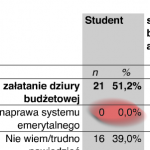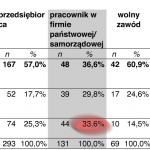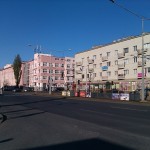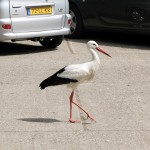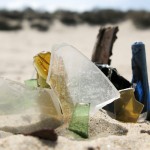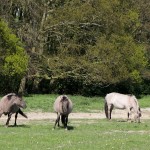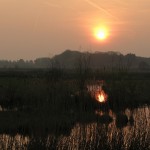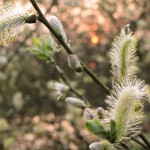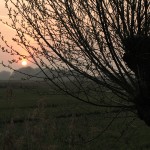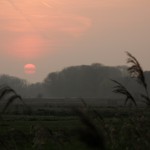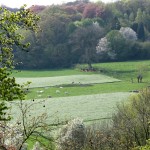According to this article in the Flemish newspaper De Standaard which cites the doctorate work of geographer Lien Poelmans currently about 20% available area of Flanders is covered by buildings or structures. The prognosis is that by 2050 it is going to rise up to 41,5%!!!
And in my opinion that is so true both about current situation and future prognosis. I only wonder what they mean by „beschikbare ruimte”. Total area of Flanders is currently covered 20% by buildings? Or total area available for building is covered in 20%?
Unmistakably Flanders is one of the most densely built up areas of Europe and World (excluding slums). It struck me that when you fly above that country, it just looks like a gigantic city map. When you go by car between any two (small) cities in Flanders, you never get in real open landscape. Driving on highways between Brussels and Antwerp (E19, A12) you never actually get out of the city. There are always houses, factories or at least some street lanterns peeping from behind some hill in Vlaamse Ardennen. Rural areas do not exist in the way I understand them.
And what always strikes me as a Pole most, is the coastline. There isn’t a single spot where you can look around, 360 degrees, and not see a single 10 storey apartment building. Maybe, but just maybe, if you go to Zwin Nature Reserve and take good care that you are well hidden between dunes you may avoid seeing them. It is quite sad. Polish coastline is rather protected, and it is not (yet) in our nature to like high buildings there. You actually hardly get to see a building from the beach unless it is a beach bar or you are in Sopot. What you get normally is a nice sandy beach separated from everything by a belt of protected dunes usually at least 40m wide and than couple of hundreds meters of forest.
To support my word I enclose a couple of nature pictures from Belgium: 😉
Whereas in Belgium on the distance 130 km (let say Brugge – Leuven) you get Brugge, Gent, Kortrijk, Ieper, Brussel, Antwerp, Leuven and more, all with medieval centres, urban areas (actually more real great, large medieval city centres than you get in entire Poland). On the same distance between Łódź and Warsaw you hardly get a restaruant (Żyrardów, Rawa Mazowiecka, excuse me for that unfair point of view :P).
Well Belgians, you are always welcome to Polish coast and countryside to enjoy landscape and nature. Population density in Belgium is about 3x as high as in PL where you can actually find areas where you get as far as 120km from the closest city which is still quite a shit hole.
For me Belgium already is one big suburban/industrial area, with lots of denser spots called cities. Considering what happened here with indigenous fauna, especially bigger mammals which are actually not present any more in Flanders (no fences along highways needed) it altogether forms a sad impression. Still if you are a city animal or city tourist it’s a great place to be or visit. And if you go to that Zwin place I mention above you may even get some nice nature where storks beg for bread on the parking place and you may encounter an animal which Belgians call „Konik Paard”. They do not know that it literally means a „paardje paard” – a „horsey horse” which actually is a Polish breed of semi-wild horse officially called Konik Polski, and konik means paardje. It is a direct ancestor of tarpan – the big eurasian wild horse which, sadly, was first extinct particularly in the area of Belgium*.
Both Poles and Flemings, if you still have something precious of nature, DO EVERYTHING YOU CAN to protect it!
*Trepka, Andrzej. „Cierpienia Przyrody” – (En: „The Sufferings of Nature”). 1. Lublin: Wydawnictwo Lubelskie, 1986


